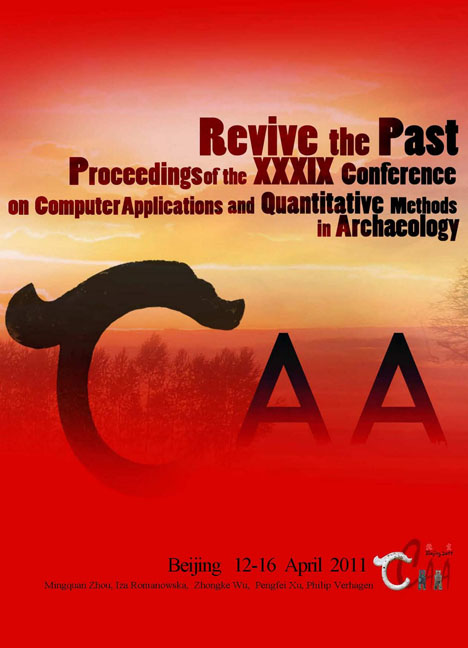 Revive the Past
Revive the Past Semantic Technologies Enhancing Links and Linked Data for Archaeological Resources
Published online by Cambridge University Press: 23 June 2021
Summary
Abstract:
Outcomes from the STELLAR (Semantic Technologies Enhancing Links and Linked data for Archaeological Resources) Project are presented. The basis for this research is the need to widen access to archaeological datasets, many of which rarely reach publication. The tools and methodologies presented will allow archaeologists, other related domains, or non-specialist third parties to cross search different datasets using querying tools to ask new research questions of the previously un-connected data. Because the data has been ‘semantically enabled’ by mapping it to a Conceptual Reference Model (CRM), such research questions could be of greater complexity and at a broader perspective than previously possible. The conceptual reference modelling also opens possibilities to investigate the basis for more implicit relationships and interpretations not previously searchable in the underlying data. The semantic technologies employed are based on standard representations of domain vocabularies and the underlying core ontology, an archaeological extension (CRM-EH) of the CIDOC CRM. Methods for mapping data to the CRM and extracting semantic RDF representations from the datasets are described. STELLAR templates and online applications are presented. The need for controlled terminologies using SKOS W3C standards for Thesauri and vocabularies is emphasised and further work on developing a SKOS template and the potential of user-defined templates for further purposes is discussed.
Key Words: Linked Data, Semantic Web, CIDOC CRM, Ontology, Semantic Interoperability, Digital Archives, Cross-searching
Introduction and Background
The STELLAR project (http://hypermedia. research.glam.ac.uk/kos/stellar/) was a collaboration between Glamorgan University, English Heritage and the Archaeology Data Service. The aims of the STELLAR project were to develop methods, tools and associated guidance documentation (http://hypermedia. research.glam.ac.uk/resources/STELLARapplications/) with tutorials and reports, to enable non-specialist archaeological users to carry out mappings of their archaeological data sets to CIDOC Conceptual Reference Model (CRM) based ontological models. The online tools facilitate the easier conversion of archaeological data to Resource Description Framework (RDF) formats by non-specialist users and those less familiar with the CIDOC CRM ontology (Doerr et al. 2011). A final outcome of the project will be for various archaeological (but non-CIDOC CRM specialist) users to convert their own data sets to Semantic Web and Linked Open Data (LOD) formats (RDF/XML), thereby testing and proving that the tools and methodologies work effectively. As a final output the project has published a group of Linked Data sets in the ADS triple store that was created for this project (data. archaeologydataservice.ac.uk/).
- Type
- Chapter
- Information
- Revive the PastProceedings of the 39th Conference of Computer Applications and Quantitative Methods in Archaeology, pp. 261 - 272Publisher: Amsterdam University PressPrint publication year: 2012
- 2
- Cited by


